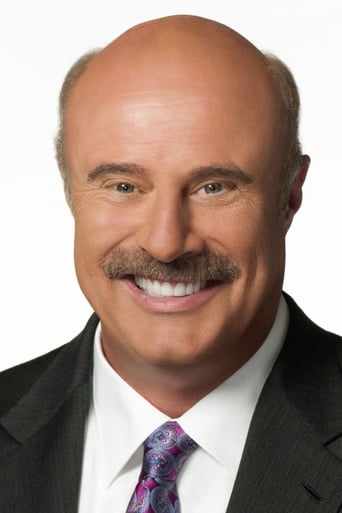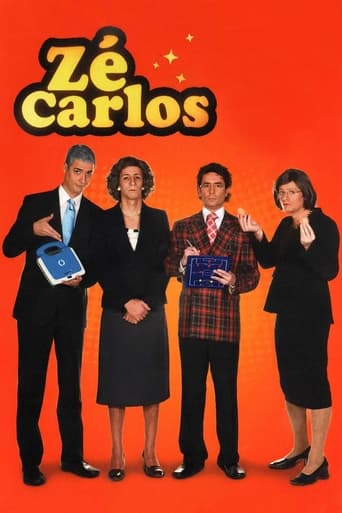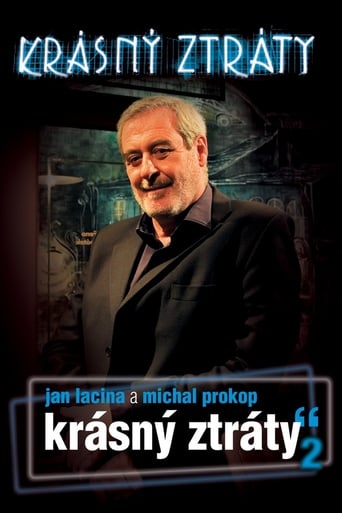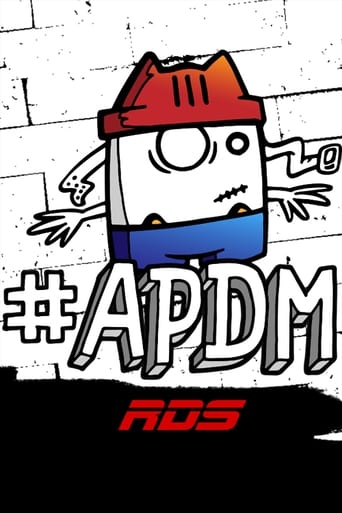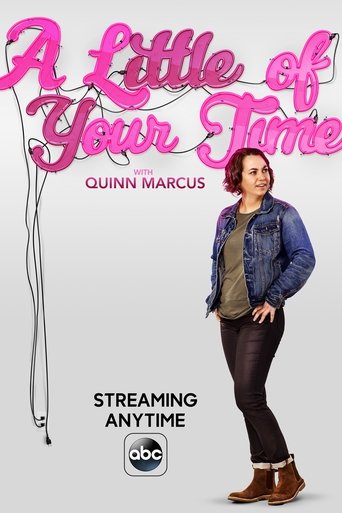
Rating:
4.948/10 by 58 users
Dr. Phil (2002)
Using the power of television, Dr. Phil McGraw presents compelling stories about real people with a variety of emotional and behavioral problems, stripping away the shame and embarrassment that too often keep people from seeking help. Its a show that is suppose to help people with their problems and to find a solution on live TV .
Writing:
- Oprah Winfrey
- Phil McGraw
Release Date:
Mon, Sep 16, 2002
Country: US
Language: En
Runtime: 42
Country: US
Language: En
Runtime: 42
Phil McGraw
Self
Season 21:

In June 2022, the United States Supreme Court stripped away constitutional protections for abortion that had stood for nearly a half-century. Pro-life supporters cheered on the ruling, while pro-choice supporters pledged to fight it. Now, in a post-Roe America, women are caught at the center of legal confusion because of these often-vague state laws. Nancy Davis says she was about 10 weeks pregnant when the fetus she was carrying was diagnosed with acrania, a fatal condition where the fetus’ skull does not form inside the womb. She claims she tried to have an abortion, but doctors denied her, because in her home state of Louisiana, abortions are banned. In an exclusive interview with Dr. Phil, Nancy and her partner, Shedric, reveal what she had to do to get a legal abortion. Nancy’s story is at the center of one of the decade's most controversial and heated debates: abortion. Today, hear from both pro-choice and pro-life advocates.

A mother says she was assaulted in front of her family at a fast-food restaurant, and a young man was beaten on a New York street in broad daylight. What do these incidents have in common? They were allegedly instigated by hate. In the U.S. in 2020, there were approximately 8,000 hate crimes reported to the FBI by law enforcement agencies. However, some Department Of Justice experts say they believe the number is closer to 250,000 per year. Dr. Phil speaks with parents, Gabriel and Nerissa, their daughter, Patricia, and their attorney, Sandy Roxas, who explain why they feel anti-Asian hate is often overlooked. The close-knit family says they are traumatized after a recent incident at a fast-food drive-thru involving a stranger who mocked them using a fake Asian accent.

Joey, a Jewish man, says he was assaulted in New York City by a gang who punched, kicked, and pepper-sprayed him on the street while shouting antisemitic slurs. Now, one year later, Joey says he’s tried to move on but still can’t understand that level of hatred. Find out what he says happened in the attack that made national news and landed Joey in the hospital. Then, Rabbi Aryeh Cohen shares some insight as to why hate crimes against Jewish people are sometimes ignored. Plus, meet a former white supremacist, Christian, who explains the psychology behind people who commit acts of violence due to extreme feelings of hate. And, Becky Monroe, Deputy Director of Strategic Initiatives and External Affairs for California, shares insightful information after tracking hate crimes across America, and law enforcement analyst Mark Powell explains why police officers do not immediately assume an incident is a hate crime, even with video evidence.

This episode is a must-see for every parent sending their child off to school. On May 24, 2022, Ana dropped her 10-year-old daughter off at Robb Elementary School in Uvalde, Texas. Twelve hours later, she found out the tragic news that her daughter was one of the 19 children shot and killed. No matter what political side you support, no one wants to see another headline about one more horrific school shooting again. Dr. Phil is joined by Rudy Perez, president of the National Association of School Resource Officers, psychologist Dr. Jillian Peterson, and sociologist Dr. James Densley of The Violence Project to get to the bottom of how we can slow down these tragedies.

Jennifer says she had no idea her 11-year-old daughter was using he/him/they pronouns and a different name while at school. She claims this went on for months before it was brought to her attention. Jennifer says she believes she should have been involved in the conversation from day one, and questions whether school faculty members may have been encouraging her daughter’s transition. Dr. Phil invites experts Eli Erlick, Dr. Yalda Safai, and Asra Nomani to dive into the complex debate over gender identity and transgender inclusivity in schools today.
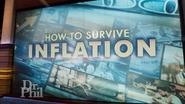
If you’re anxious because every trip to the grocery store and gas station cuts deeper into your budget, you are not alone. At 9.1 percent, inflation is at a 40-year high. With less supply and more demand for so many products, two-thirds of Americans are living paycheck to paycheck and are outraged over prices. To help, Dr. Phil is starting a series on how to survive inflation. Learn credit card tips, grocery ideas, and coupon tricks that could save you thousands! Today, Harvard-trained economist and Chief Economist of Instawork Dan Altman explains what is happening with the economy. Then, get budget tips from Jordan Page, a mother of eight who calls herself the Fun, Cheap, and Free Queen. You won’t believe some of the money-saving tips!

Dr. Phil delves into the dangerous fraternity rituals putting young men at risk. One of these young men, Danny Santulli, was at a fraternity pledging event at the University of Missouri in October 2021. By the end of the evening, Danny was in the hospital with a blood alcohol content six times the legal limit. He survived, but is no longer the Danny that everyone knew. He suffered severe brain damage, lost his eyesight, can no longer speak, feed himself or walk, and spends his days in a wheelchair being cared for by his family. Hear what happened the night everything went tragically wrong and see the shocking surveillance video. Plus, Danny’s family shares a glimpse into the aftermath of this tragic incident and how difficult life is day to day.

Dr. Phil takes you inside a fraternity hazing trial that made national headlines. Two former Bowling Green State University fraternity brothers have been sentenced for their part in the alcohol poisoning death of 20-year-old student Stone Foltz. Since this tragedy, Foltz has become one of the most prominent faces of this national epidemic. He was in his final days of pledging Pi Kappa Alpha when prosecutors say he and other underage pledges were encouraged to drink an entire bottle of liquor in order to be initiated into the brotherhood. Meet Foltz’s family and hear about the sentencing. Do they believe the punishment fits the crime? Plus, hear chilling testimony from Foltz’s fellow pledges and his girlfriend that give insight into his deadly initiation night.

An umpire gets punched in the face by an upset mother, a worker gets a drink thrown in her face over a 25-cent overcharge on cheese fries, a customer rips a cash register off the counter after an order was made incorrectly, and a man gets so angry on the road while driving that he ends up dead. It sometimes feels like it has gotten too dangerous to leave the house because people’s fuses are so short. What has happened to America? Why do people feel that they can do anything to anyone these days, that rules just don’t apply to them, and/or if they don’t like something, they have the right to intimidate, verbally abuse or even physically assault you? Dr. Phil speaks with people who have experienced firsthand when someone blows their fuse.

President Biden recently announced a three-part plan to provide more breathing room to America’s working families as they continue to recover from the strains associated with the COVID-19 pandemic. This plan offers targeted debt relief as part of a comprehensive effort to address the burden of growing college costs and make the student loan system more manageable for working families. The Education Department has indicated that around 8 million federal student loan borrowers who already have their income information on file with the Department will be eligible for automatic student loan forgiveness. However, this announcement kicked off a nationwide debate. Supporters praised the act as a landmark move to wipe out millions of student loan debt, while critics say the plan will increase inflation and does not address the underlying problem of soaring higher-education costs. Dr. Phil speaks with people on both sides of this issue.

When it comes to children and sports, many believe there is a huge problem with entitled athletes. Are athletes being coached to believe they are individually more important than their teams and that the rules simply don’t apply to them? Dr. Phil sits down with parents, athletes, coaches, and students who all say yes – but they strongly disagree about who is to blame. A coach claims parents are to blame due to modeling outrageous and entitled behavior. However, the sports parents in Dr. Phil’s audience push back, claiming coaches need to stop blaming them and start blaming themselves. Then, meet a referee who wrote an emotional email to parents informing them he was quitting due to their sideline behavior. And, a former all-American quarterback talks about the dark side of college sports. Plus, ESPN investigative reporter Paula Lavigne reveals some of what she has uncovered.

You’ve seen the headlines about student athletes being accused of sexual assaults and other egregious acts -- but are athletes being supported and protected by universities? Dr. Phil meets two women who claim they were sexually assaulted by college athletes and say there is a big double standard when it comes to athletes accused versus typical students. Bailey claims she was sexually assaulted by three basketball players but claims they were protected by the university. Then, Teresa says she knows firsthand the double standard when it comes to athletic preferential treatment because, even though the person who assaulted her was convicted, served time, and had to register as a sex offender, he was allowed to return to the field and was hailed as a star for another university. Plus, when an attorney claims athletes are the victims and their notoriety makes them easy targets for false accusations, he sparks an emotional debate.

Fentanyl, a synthetic opioid, is plaguing the country and killing some of the most vulnerable people: children and young adults. Not only are counterfeit prescription pills routinely laced with Fentanyl, but so are street drugs like cocaine and marijuana, which is killing people in masses. Feliz shares the tragic story of losing her sister, Karina, to a mass fentanyl poisoning that killed her and four other adults. Also, John, a father, says he watched both his sons overdose in his home after taking what they thought was Oxycodone but instead was a counterfeit pill laced with fentanyl. One of his sons survived and shares what happened on that fatal night.

Refusing to answer an email or call after working hours, not doing a work assignment you felt wasn’t in your job description, and insisting that if your employer wants you to go above and beyond, they need to pay you for it. Does that sound ridiculous? Quiet quitting, the idea that employees only do what is in their job description, between the hours they were hired to do it, and nothing more has become more than a viral social media hashtag; it has become a movement by employees of all ages. Dr. Phil speaks with an employment and labor attorney who says quiet quitting makes perfect sense, because if employers want employees to work extra, then they need to pay them extra. Then, hear from a young man who says he is currently quiet quitting. Why does he say he won’t put in extra effort without being paid for it? Plus, business owners say quiet quitters are just a bunch of slackers, undependable employees hiding behind a cute hashtag to make lazy sound better.

Cultural appropriation, to many, means people with a privileged status taking cultural identity markers from members of a minority community without permission or acknowledgment. This can include language, art, music, literature, clothing, food, beauty standards/traditions, social norms, customs, and values. So, does that mean that a Caucasian person can’t own a Chinese restaurant? Can a Latina wear braids or locks? Should children never wear Halloween costumes that depict another culture, ethnicity or race? When does admiration turn into appropriation, and is the argument against appropriation just? Does the anti-appropriation movement ever turn into a form of racism? Meet a young woman who says she received death threats for wearing a dress from another culture, a woman who says she was called out for cosplaying a Japanese anime character, and a woman who says people need to stop stealing other cultures' foods and calling them their own.

Dr. Phil sits down with Amy Hall, who explains how she and her husband, Allen, were blindsided when their 16-year-old son, Jed, vanished from their home in Idaho Falls, Idaho, in January 2018. Amy and Allen say they worked with the police and detectives to find Jed and finally accepted help from volunteers Jared Leisek and Doug Bishop from Adventure with Purpose, a search and recovery dive team who has helped to solve cold cases across the country. Dr. Phil sends a crew to Idaho Falls to follow the mystery of what happened to Jed. Then, retired law enforcement officer Frank Powell shares how regular citizens can help become volunteers to find missing people. And, past guest Mike Knabel, who along with his family has been searching for his daughter Andrea Knabel since she disappeared in August 2019, gives an update.

As Americans begin to emerge after two-and-a-half years of enduring the COVID-19 pandemic, the real toll of the decisions made by the government and politicians is starting to show in children, teens, and families across the nation. One mother says the closure of schools during the pandemic caused her daughter’s behavior to wreak havoc in their home as she struggled with online distance learning. A couple claims financial hardships took a toll on their family and caused an even further divide in their parenting decisions and relationship. And, a college freshman says she felt completely unprepared for her first year of school. Psychiatrist Dr. Charles Sophy joins Dr. Phil to help these people reclaim their relationships with tools from his new book, Family Values: Reset Trust, Boundaries, and Connection With Your Child.

Dr. Phil discusses the highly debated issue of whether or not the body positivity movement -- a belief system that embraces bodies of all shapes and sizes -- has gone too far. Since 2020, 36.5% of Americans have been considered overweight and 32.5% obese. Are we doing too much to celebrate the plus-sized? Not according to Lexi and her husband, Will, who say they’ve struggled with their body image their entire lives and have now found freedom in letting go of the need to control their weight and instead accepting themselves the way they are. Dr. Phil also meets YouTube personality John Glaude, who says he once believed in the body positivity movement until it almost killed him. Plus, Dr. Howard Liebowitz discusses the medical realities of being overweight, and nutritionist Kelsey Koehler offers tips to set practical goals for weight loss.
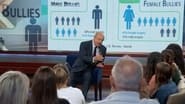
We’ve all heard of children being bullied in the schoolyard and teens being bullied online. But did you know that 48.6 million adults have been bullied as adults -- by adults -- at work? The bullying, which can take many forms, including exclusion from professional activities, verbal attacks, isolation, rumors, and humiliation, is often hard to prove and difficult to report, and there are few laws protecting against it. Meet a woman who claims that, after years of workplace bullying, she finally chose her physical and mental well-being over being able to pay her mortgage, so she quit her job. Then, another woman says, “The most cold, calculating, and unexpected villain a woman will ever come face to face with at work is another woman.” And, meet a man who claims that his workplace bully led him to contemplate taking his own life. Find out what stopped him. Plus, hear from a woman who alleges she was bullied when she worked for a multinational financial services company.

Should transgender athletes be allowed to compete with those of the gender they identify with or must they only compete with athletes who share the gender they were assigned at birth? Are laws that ban transgender women from participating in women's sports fair? LGBTQ+ activists have described criteria limiting transgender athlete involvement in gendered sports as "discriminatory.” Lia Thomas made headline news and stirred debate when she competed in swimming nationals as a transgender woman. Dr. Phil, along with Layne Ingram, a transgender man and basketball coach, and Olympic swimmer Nancy Hogshead-Makar, an advocate for girls and women in sports and CEO of Champion Women, discuss what they believe is right and fair. Then, Riley Gaines, who competed against Lia Thomas, gives her perspective on how she felt after their race. The big question is: what does the science say? Harvard professor Dr. Carole Hooven breaks it down.

Some believe self-censorship is a big problem today, particularly in light of the idea that someone can be "canceled" for their words -- blocked from having a prominent public platform or career for sharing their opinion. Dr. Phil interviews Nate, a former Idaho police officer, who claims he was fired after making a TikTok video about NBA superstar LeBron James that went viral and has been viewed over 4 million times. Nate explains how the fallout from the video affected him and his family, too. Dr. Phil also speaks with conservative political commentator Tomi Lahren, who says she recently had to be protected by state police from student protestors at the University of New Mexico. Greg Lukianoff, president of the Foundation for Individual Rights and Expression, says he believes Americans have lost the ability to discuss their differences rationally.

The “self-censorship” debate continues. Meet Alejandro, a student who claims administrators at his community college violated his free speech rights. He says when he and members of the club Young Americans for Freedom posted flyers on campus, they were censored. Then, which public figures are fighting back against cancel culture? And, Dr. Phil takes a closer look at a list of terms that are now allegedly off limits. What words are on that list? Tune in to find out.

Dr. Phil discusses harm reduction, the concept of treating drug abuse like a medical issue and providing addicts with paraphernalia, such as clean needles in a safe space, and free housing regardless of whether or not they test positive for drugs. Michael Shellenberger, author of “San Fransicko: Why Progressives Ruin Cities,” says he believes that America’s approach to drug abuse, crime, and homelessness has gotten too soft. Los Angeles resident Marcy Jo agrees and says open drug use and homelessness in L.A. have gotten out of control. On the other side of the debate is California State Senator Scott Wiener, who wrote Senate Bill 57. The bill would have legalized safe consumption sites in San Francisco, Oakland, Los Angeles and Los Angeles County, but was vetoed by Governor Newsom in August 2022. Weiner says he was extremely disappointed that the veto blocked life-saving legislation.

In 2014, 29-year-old Brittany Maynard transformed the conversation about medical aid in dying, which allows a terminally ill patient with a prognosis of six months or less to live and is capable of making their own healthcare decisions, to self-administer prescribed medication to die with dignity. At the time, medical aid-in-dying was only authorized in four states, but today, it has been legalized in 10 states and Washington D.C. Additionally, many Americans are choosing to fly internationally to use medical aid-in-dying for non-terminal illnesses. With its growing popularity and more and more legislation being passed, Dr. Phil and his guests discuss dying on your own terms. With only one life, who says you can’t control your end date? And, is it your right to die on your own terms?

As a whole, Baby Boomers, those born between 1946 -1964, believe they have worked hard, sacrificed, and paid their dues – and that the younger generation is entitled and sits on social media all day, expecting to get everything handed to them. However, Gen Z, those born between 1997 – 2012, blame Baby Boomers for the current state of the environment and the economy. Since 2019, the hashtag #okboomer has been used 3.7 B times on TikTok to describe a Baby Boomer being “out of touch.” Is Gen Z really being coddled, whereas Boomers “pulled themselves up by their bootstraps”? And, how is that affecting their mental health? Dr. Phil discusses these generational differences -- societal values, work ethic, use of technology -- and if these two generations, 50 years apart, are really that different, after all.

It used to be that if you were a child being bullied at school, once you walked over the threshold of your home, there would be a “reprieve” until you walked into school the next day. But times have changed. Teens, tweens, and those even younger are being bullied from every angle because, with the internet and the prevalence of social media, there are always ways to target a victim – oftentimes anonymously. And if a bullied teen does disconnect their devices, bullies can always use old-fashioned, in-person harassment. It seems there's no escape. Meet Antoinette, whose 13-year-old daughter, Muffin, took her own life after being bullied by children at her school. When not in school, Antoinette says they continued the bullying online, creating fake online pages and talking about Muffin’s appearance. On the Saturday morning of Muffin’s death, Antoinette went to the store only to return to every parent’s worst nightmare.

Bullying in 2022 comes in many forms, and the internet continues to be the most popular way to deliver this toxic and cruel behavior. Bullying is a severe threat to a child’s self-esteem and mental health. Being targeted by a cyberbully can increase the risk of anxiety, depression, low self-esteem, feelings of worthlessness, and, most tragically, suicide. But not all bullying is long-term. In fact, the heavy psychological toll this kind of harassment takes can often be swift. Meet Cheryl and Hunter, whose 16-year-old daughter, McKenna, took her own life after being bullied by four girls she thought were her friends. They say that after less than five days of being bullied, McKenna could no longer cope and made the tragic decision to take her own life. The parents say their daughter went to shower on a Saturday evening, and they never saw her alive again.

In March 2022, Florida Governor Ron DeSantis passed the “Parents Rights in Education” law, preventing the discussion of sexuality or gender identity in kindergarten through third grades in Florida and requiring parents to be part of teacher and student meetings. Advocates say this law protects the rights of the parent. But critics nicknamed the law “Don’t Say Gay” and claim it turns back the clock on equality. Tiffany Justice and Tina Descovich, co-founders of Moms of Liberty, say every parent deserves a seat at the table to make sure that certain inappropriate content is not discussed. Candice Jackson, an attorney and mother who worked for the Department of Education under President Trump, says it’s our First Amendment right not to call someone by their preferred pronouns. However, Nadine Smith, executive director for Equality for Florida, says children need full transparency in their curriculum.

There are shortages of everything from flights and airplane pilots to teachers, baby formula, certain foods, workers, and more. Dr. Phil discusses how shortages are affecting us and how we can overcome these hard times. The Points Guy, Brian Kelly, gives tips on how to travel, get cash back, and go on a dream vacation -- or have extra money to pay your bills -- by using points. Economist Dr. Victor Claar explains the shortages our country is facing and how we can make things a little easier at home.

Marijuana, weed, pot, cannabis -- no matter what you call it -- it’s been hotly debated whether it’s safe to use or if legalization is doing more harm than good. The number of Americans using marijuana is at a record high, so it appears that using pot is getting a pass! But, many experts and concerned citizens insist marijuana is dangerous and that it should not be legal. Dr. Phil mediates a heated discussion between people on both sides of this issue, including retired police officer Major Neill Franklin, marijuana policy maker Karen O’Keefe, and dispensary insiders Bre and Char, who insist legalization is keeping children and communities safe. On the other side are anti-legalization activist Dr. Kevin Sabet, as well as ER physician Dr. Roneet Lev, who claims to see the effects of marijuana in her hospital every day. Plus, Laura Stack claims she lost her teenage son due to the legalization of marijuana.

Sextortion, when someone blackmails you into providing them money, images of a sexual nature, or sexual favors by threatening to release your graphic information, videos, and/or pictures, is real and is not only happening to adults. College students and young kids from kindergarten to teens in high school are also becoming victims. Parents, this is a wake-up call because, in some of these cases, the results are fatal. Kaylee says she was a victim of sextortion from 12-16 years old. She says her sextortionists groomed her by pretending to be her friends online. Kaylee’s mother, Angela, says she only found out when the FBI showed up at her door when Kaylee was 19. Sierra, Kaylee’s best friend, says she was also groomed by the same men as Kaylee, but neither of them knew about the other until years later. Then, meet Carol whose 15-year-old daughter, Amanda, was sextorted and tragically took her own life.

Dr. Phil continues his conversation about “sextortion,” a serious crime that occurs when someone manipulates you into sending a compromising image and threatens to distribute your private and sensitive material if you don’t provide them more images, sexual favors, or money. These relentless and remorseless predators are targeting children as young as 5 years old, and it’s not only happening to girls; boys are also victims as well. Mary and Darren say their son, Riley, died by suicide after being sextorted when he was 15. Pauline says her 17-year-old son, Ryan, sent a perpetrator, who he thought was a girl his age, a photo, and that’s when the blackmailing began. Pauline says after only eight hours, Ryan tragically took his own life.

There is a raging national debate between people who are pro-life and those who are pro-choice. Nancy Davis is one of the women caught in the crossfire of the abortion debate since Roe v. Wade was overturned. Nancy says she was about 10 weeks pregnant when the fetus she was carrying was diagnosed with acrania, a fatal condition where the fetus’ skull does not form inside the womb. She claims she tried to have an abortion, but doctors denied her, saying she’d have to carry the baby to bury it because, in her home state of Louisiana, abortions are banned. Dr. Phil speaks with pro-choice advocate and President of the National Organization for Women, Christian Nunes, and Lila Rose, pro-life activist and president/founder of Live Action, a non-profit anti-abortion organization.

Looking for love on these apps can be addictive -- but it can also be very dangerous. There have been people scammed, sexually assaulted, and others who have had their life threatened after meeting people on these apps. When Jules moved to California, she says she decided to jump on a dating app figuring it would be the easiest way to meet people. However, she says one date, who appeared to be jealous, stole her keys and hid under her bed to spy on her. Holden says he went to his date’s father’s house to play video games but ended up waking up in a bathtub and barely making it out alive. Christine says after her divorce, she thought she met her Prince Charming on a dating app, but he ended up scamming her out of a lot of money. Kelly says she met a man at a bar for her first date, and before she could say bye, he grabbed her, threw her in his car, and sexually assaulted her.

However, women who are choosing to wear the clothing in question claim they should have the freedom to wear what they want and shouldn’t be “slut shamed” or forced to censor their wardrobe. They claim women who have a problem with it are from an older generation with an even older sense of fashion and style. Nicole, a social media fashion influencer and wardrobe stylist, says showing more skin is all about female empowerment. Radio show host Andrea Kaye and Kent State University Associate Professor Dr. Suzy D’Enbeau weigh in, explaining why they disagree and believe dressing in a revealing way is not actually empowering to women at all. Plus, Dr. Phil meets Nicole, who claims she was denied entry at Disneyworld due to her outfit. She says when she posted a video of her story online, she was “slut shamed” and even received death threats because of her outfit.

Dr. Phil continues his series on how to survive inflation. Today, financial experts share money-saving and money-making tips to help you learn how to take control of your finances during inflation. Plus, find out the best ways to use money to make money, savings hacks, freebie secrets, and get advice on how to set up the next generation for financial success.

Sadly, interest in becoming a teacher or remaining a teacher is reportedly the worst in our nation’s history. Dr. Phil tackles the teacher shortage, the “Great Resignation” of teachers, low student standards, teacher frustrations, and new laws in states like Arizona that put teachers with non-traditional backgrounds in classrooms. Other states are pushing universities to expedite teacher certifications, and some districts are hiring student teachers who are still enrolled in college to be full-time first-year teachers. Dr. Phil and his panel of guests also discuss possible solutions to the country’s falling student performance in math, science and reading according to OECD’s PISA 2018 international world ranking of developed nations.

Nowadays, parents post about their children on social media platforms more than ever. “Sharenting” is the term used to describe parents publicizing sensitive content or oversharing their children on the internet. Proponents feel sharing their family is an expression of parental pride and argue that critics take their posts out of context. Critics say oversharing is an invasion of children’s privacy, dangerous, and harmful to the relationship between parent and child. Dr. Phil speaks with the Furrha family, a popular social media family with roughly 16 million followers, as well as experts and parents, to discuss online sharing and what parents should consider before posting.
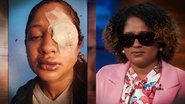
Liz Gomes says she was brutally beaten by a homeless ex-con in a horrific attack caught on video. Her alleged attacker has spent time in prison for attempted murder and assault in the past, and Liz and her partner, Clement, say they want to know why this man was out on the streets to strike again. Liz and Clement say they question whether their elected officials will do anything about the surge of violence in their city. Don’t miss the surprise Clement has for Liz that brings tears of joy to the audience. Next, meet Marcus Arbery. Almost three years ago, his 25-year-old son, Ahmaud, went jogging in a Georgia neighborhood and was shot to death after being chased by a trio of white men. Marcus says he’s on a mission to fight in his son’s name to get more people to understand why their vote counts.

America is very divided -- wear a mask, don’t wear a mask, get vaxxed, don’t vax, fund the police, defund the police, inflation or deflation, the election was rigged, no it wasn’t! And, now, it seems we are living in two different worlds, and a perfect storm is brewing. Is America ready for an intervention? People feel more angry, isolated, and victimized than at any time in recent history, and politicians seem to be using a war of words that just keep stoking the fire. America’s best-known and most respected political strategist and pollster, Dr. Frank Luntz, joins Dr. Phil to show us the words to use and which to lose when it comes to having a conversation with someone who doesn’t share your beliefs.

Should someone be able to film you in public without your consent and post it online? Some say absolutely; everyone who behaves badly is fair game and sharing their behavior online is about accountability and justice. They don’t care about the repercussions the person may face after their behavior has been exposed. Others believe recording strangers in public is more about getting attention on social media and that even in public, people should have a semblance of privacy. Dr. Phil meets Jasmine, who claims she recorded and posted a video of a confrontation she had with an angry woman at a restaurant to get justice and force accountability. The woman in Jasmine’s video was identified online by a man known as ThatDaneshGuy, who says identifying people in these videos is a way to help people get justice -- but does it do more harm than good?

Most laws are adopted to keep communities healthy and safe and to reflect and memorialize good public policy. But, even the most well-intentioned laws can backfire and lead to absurd or unjust outcomes. Dr. Phil’s guests share what they consider outrageous miscarriages of justice involving a car accident, a rape, and a murder that ruined lives. Plus, hear from those trying to change the law.

Have you ever been told by a doctor that your symptoms are all in your head? When a doctor dismisses a patient’s health concerns as nothing more than the product of their imagination, some call it medical gaslighting. Dr. Phil meets several women who claim doctors didn’t take them seriously, which led to major health problems. Philecia was 29 when she says her life came crashing down after an undiagnosed lump turned into stage 4 breast cancer. Then, a woman says she saw 30 different doctors within five years for migraines before she finally got a diagnosis. And, how did a 27-year-old woman go from a competitive runner to using a wheelchair and needing open heart surgery? Dr. Phil gives life-saving tips on how to be taken seriously at the doctor’s office.

Two families, one tragedy, two different outcomes. On May 24, 2022, a gunman entered Uvalde Elementary School and took the lives of 19 students and two teachers. Parents Kimberly and Angel reflect back on that day when they lost their 10-year-old daughter, Amerie. Kimberly was with her daughter at the school just one hour before the gunman entered the building and says she asks herself why she wasn’t there to protect her daughter. Amerie’s best friend, Khloie, was in the classroom when the gunman entered their room. She says she was holding hands with Amerie right before she left her hiding spot to call 911 for help and was killed by the gunman. Khloie’s parents, Jamie and Ruben, reveal what she told them happened inside her classroom during the 77 minutes as she, her classmates, and teachers waited helplessly for someone to save them.

Eleven-year-old Khloie, a young survivor of the Uvalde Elementary School shooting, remembers her best friend, Amerie, and the classmates and teachers she lost on that fatal day. Christine, a former student at Marjory Stoneman Douglas High School in Parkland, Florida, gives insight to Khloie and her parents, Jamie and Ruben, on what helped her get through the darkest days she faced after the shooting at her high school that took the lives of her friends and teachers. And, Tony, a father who lost his 14-year-old daughter, Gina, in the Parkland shooting, shares with Angel and Kimberly, whose 10-year-old daughter, Amerie, was killed in the Uvalde shooting, his four-and-a-half-year journey with grief after losing his daughter.

Everyone is talking about inflation and wanting ways to stretch their dollar. Today, the coupon queen tells viewers exactly how to get necessities for nearly nothing. Then, a consumer advocate explains shrinkflation -- how to spot it and what to do about it. Plus, a food prepper shares her tips to prepare for shortages and save big on food. And, an economist reassures people that inflation is temporary and shares tips on how to hunker down without sacrificing your quality of life.

The new series Dahmer - Monster: The Jeffrey Dahmer Story may have landed the number one spot on Netflix, but it wasn’t popular with everyone. Angry family members of Dahmer’s victims say the controversial drama re-traumatized them and romanticized the notorious serial killer. You’ve seen Hollywood’s version. Today, Dr. Phil is telling the real story and meeting the real people who say they knew the real monster that was Jeffrey Dahmer. In an exclusive interview, hear from the sister of one victim who says the series glorified the man she calls “Satan,” as well as two men who say they were tortured and terrorized by Dahmer and survived.

Victims and survivors of Jeffrey Dahmer say they want people to see him for who he really was -- not the glamorized TV version. See a never-before-aired interview with Dahmer’s father and stepmother that sheds light on the monster behind the man. They provide chilling details about his bizarre childhood behaviors. Plus, the Netflix series Dahmer - Monster: The Jeffrey Dahmer Story pushed a decades-old story into today’s spotlight, some say giving it a 2022 “pop culture moment.” After the series debuted, Dahmer’s infamous glasses went up for sale for $150,000, and people dressed up as the notorious serial killer for Halloween. Has our culture’s obsession with true crime desensitized us?

What creates a monster? As the popular new Netflix series Dahmer - Monster: The Jeffrey Dahmer Story pushes the heinous crimes of the notorious serial killer back into the spotlight, what can we learn about what may have made him the evil he was? Do chilling home videos of Jeffrey Dahmer as a little boy show an innocent child before he became evil? Or, were the signs already there? His father reveals the red flags he says he missed.

Two years ago, Katelynn Spencer found out that two videos of her – one she consented to and another she says she had no idea was taken -- had been posted without her consent on a "revenge porn" site for over a decade. She says the effects were devastating. Then, meet Uldouz Wallace and Kayla Laws, who say their images were stolen from them and posted without their consent or knowledge. Charlotte Laws, Kayla's mother, made it her mission to shut down the "revenge porn" site that hosted images of her daughter, also joins the conversation. And, cybersecurity expert James McGibney says when he learned about the most notorious "revenge porn" site of the time, he bought it, shut it down, and rerouted it to his anti-bullying site. He says he now devotes his expertise and energy to helping women get their private, intimate, and stolen images off the internet. Plus, Los Angeles attorney Samuel Dordulian talks about what your legal options are if this happens to you.

On October 20, 2022, Dr. James Heaps, an obstetrician-gynecologist and oncologist at UCLA, was found guilty of five counts related to sexual assault and misconduct against some of his patients. Since his arrest in 2019, hundreds of alleged victims have come forward, claiming they were sexually assaulted during one or more of their wellness examinations with Dr. Heaps. However, Dr. Heaps continues to maintain his innocence. Today, four of his victims – Melanie, Ellen, Nicole, and Gaby – speak out and share their stories of the horrific abuse they claim they endured. Their attorneys, Darren Kavinoky and Jennifer McGrath, say things need to change now to hold predators and the large institutions who employ them accountable.

The Surgeon General’s Advisory stated, before the COVID-19 pandemic, mental health challenges were the leading cause of disability and poor life outcomes in young people. The pandemic shutdown further exacerbated the mental challenges, and youth mental health is trending in the wrong direction across the country. Why is this happening? How do parents and schools play a role? Some experts believe young people were never taught how to fend for themselves because they were raised in a bubble by “concierge parents“ who protected them from learning about life and developing resiliency. Twenty-four-year-old Gracelyn says she describes her childhood just that way. She admits she was overprotected in some ways growing up, which she believes led to struggles with anxiety and depression for the past six years. What does she reveal for the first time? Also, parents of teens with mental health struggles talk about their frustrations. This is a life-saving episode you won’t want to miss.

The conversation about the rise in mental health issues among young people continues. Dr. Phil speaks with 22-year-old Emma, who says she was a cheerleader and “picture-perfect American girl” who appeared happy on the outside but was secretly struggling with severe anxiety and depression, which led her to make a near-fatal decision that changed her life forever. Ross Szabo, the wellness director at Geffen Academy at UCLA, the CEO of the Human Power Project, and co-author with Melanie Hall of Behind Happy Faces: Taking Charge of Your Mental Health, says he has ideas to implement more mental health education in schools. And, Massachusetts's Congressman Seth Moulton shares his latest project: the new 9-8-8 National Suicide Prevention Lifeline. Americans experiencing a mental health crisis or who are concerned about the mental health of a loved one are now able to dial 9-8-8 and get rapid, free, trained and confidential help from a network of 200+ local crisis centers nationwide.

California reportedly holds more than half of all unsheltered homeless people in the United States and the highest number of homeless encampments. Clusters of tent cities line almost every block. Beach paths, parks, underpasses and street dividers look like “Skid Row.” California’s problem is reflective of a growing national crisis, and now, major cities across the U.S. are taking aim at the issue by passing new laws that restrict where the homeless can camp. But, these new measures are sparking a heated debate. Dr. Phil is joined by a councilman who claims he has the solutions, as well as the Executive Director of the National Coalition for the Homeless. Plus, go inside some of Los Angeles’ most dangerous encampments, and hear from a homeless woman who says there is hope.

Dr. Phil talks with guests who have different opinions about tipping or giving gratuity for various services, such as a haircut, a manicure, or dinner at a restaurant. Walter admits he never tips and is completely against the entire tipping system. Jackson and Theresa, who have been working as servers, both say they believe in tipping others for a job well done. In fact, Jackson says he can even spot a bad tipper! Dr. Phil puts him to the test just to see how accurate his skills are. Then, meet Naam and Bryce who both say that modern tipping in this country has become way too aggressive. And, Etiquette Expert and Founder and CEO of Beverly Hills Manners Lisa Gaché gives Dr. Phil and his guests her views on tipping.

Are children the future? It depends on whom you ask. Parenthood has increasingly become a topic of conversation as more and more people are deciding not to have children. All across social media, people are celebrating “child-free” living and some think the human population should just become extinct altogether. There is a fierce and controversial argument about the environmental, economic, and racial concerns of having or not having children. Will having children make the world a better place? Dr. Phil discusses whether it’s “smart” to procreate with pronatalists, those who encourage people to have children, and anti-natalists, those who believe it is morally/ethically wrong or unjustifiable for people to have children. Plus, Dr. John Whyte, Chief Medical Officer at WebMD, shares how to take control of your diabetes risk. Dr. Whyte says every year, 1.5 million people are diagnosed with type 2 diabetes, and this is a serious issue. Tune in today.

People “follow the leader,” the loudest voice or biggest trend, and soon enough, their whole life revolves around this new trainer, diet, and lifestyle. From fitness classes with “God-like” instructors to trendy side hustles that are all over social media – you might not realize that these companies and people are using “cult-like” tactics to lure you in and take your money, your time, and your loyalty. Cult deprogrammer and specialist Rick Alan Ross shares what elements make up a dangerous and destructive cult. Dr. Natalia Petrzela and Monica share their stories about being a part of different “cult-like” environments in the fitness world and working in multi-level marketing companies. And, Sarah claims that she joined what she thought was a yoga and meditation studio but instead was a front for a dangerous group. Why did Sarah stay for nine years -- and how did she get out?

There are a number of disturbing pet trends today -- including pet theft, dog attacks, and pandemic pet regrets. Guest Amanda says she was robbed and pistol-whipped in her home while two men were stealing her beloved Frenchie. Another guest named Amanda says she was seriously injured and her dog was killed when a pit bull and an Akita attacked them during a walk. Jarrod shares his pandemic pet regret, joining the 54% of dog owners who say they've had regrets about getting a dog. Dog trainer Jas Leverette has helpful tips on how to train your dog. And Dr. Wayne Zuvers and Doc Halligan discuss the hardships veterinarians are facing. Dr. Phil shares the precautions and tips all pet lovers need to consider.

Politics has been taking a toll on relationships since 2016, and sometimes, it has even gotten violent. Many people don’t have the ability to agree to disagree anymore. Rick and Barbara are married -- but she’s a liberal and he's a conservative. When the 2020 election got underway, Barbara says she didn’t know how to talk to her husband after she found out he voted for Trump. And, identical twin sisters Monica and Jessica say they may wear the same outfits and even finish each other's sentences, but politically, they are on opposite sides of the aisle. And, former Republican strategist and co-founder of the Lincoln Project Rick Wilson joins Dr. Phil to help make sense of why America is so polarized. He shares why he left the party and tips on how to communicate with someone who may not share your opinions.

Dr. Phil meets Danielle who survived Hurricane Ian as it decimated her community and flooded her home, while she and her two sons with disabilities were trapped inside. Now, Danielle says the trauma she endured during the storm has left her barely living. Then, Athena and her husband, Simon, say their 9-year-old son, Xavier, was never the same after he was pulled from the rubble after a tornado in Moore, Oklahoma tore down his school, leaving him buried alive and killing his classmates. Tragically, just weeks before the fifth anniversary of the tornado, Athena and Simon say Xavier took his own life due to the trauma he endured that day. Dr. Phil also sits down with Xavier’s sisters, Haley and Marissa, who were emotionally affected by the tornado as well.

Longtime watchdogs of hate speech say there’s nothing new about the kinds of antisemitic comments that rapper Ye, formerly known as Kanye West, and others have made recently. But what has struck some experts is how blatant the comments about Jews are at a time when incidents of harassment, vandalism, and violence have been at their highest levels since at least the 1970s. Recently, Jewish community centers throughout Detroit and synagogues in New Jersey were evacuated due to bomb threats, and in Sacramento, the sign in front of a synagogue was set on fire and desecrated with swastikas. Dr. Phil is joined by a panel of guests to discuss recent incidents of antisemitism and solutions.

What if you found your dream home online and the person claiming to be the property agent offered you a lease and asked you to wire the money without ever meeting them? Breanna says that’s what she and her family did. Then, meet Kaylee, who says she was scammed by someone pretending to be a Sheriff’s Deputy, and Charlotte, who says she thought she was talking to a customer service agent at her bank only to find out she was scammed out of her savings. Callie and Lara also share their stories of being scammed while trying to find jobs online. Cybersecurity expert James McGibney joins the conversation to explain how these cunning scam artists think and why these scams are so successful. Plus, singer and songwriter Katharine McPhee and her husband David Foster, bring some holiday cheer into the studio and perform a song from their new album, Christmas Songs.

Thirty-two-year-old Keisha says she knows firsthand about predatory dealings in the real estate industry. In a video that went viral and made news headlines, she says that when her grandfather passed away in 2020, she inherited his home and felt pressured into selling after being bombarded with letters offering to buy the property. Why does she say she fears racial discrimination will affect the actual value of her property? James and Misty say they’ve filed a federal discrimination lawsuit after a local real estate agent allegedly rejected their intention to buy condos based on their race. However, the accused agent denies she racially discriminated against them. Find out what James and Misty’s civil rights attorney and advocate for social justice, Justin Moore, says about his clients’ case. And, meet Chris Murray, an attorney who represented a client wrongfully accused of racial discrimination via “steering.”

The "Dr. Phil" discussion on real estate bias continues. Dr. Phil talks to Anthony Marguleas, a real estate broker and owner of Amalfi Estates, who claims he has witnessed firsthand property owners who refuse to sell to someone of a different ethnic background. How does he handle these violations? Also, fair housing lawyer and the Ashland-Spears Distinguished Research Professor Emeritus at the University of Kentucky College of Law Robert Schwemm discusses his role in the Long Island Newsday short documentary, "Testing The Divide." What does he say were his findings, and how were they pivotal in effecting change in New York State? What should Americans nationwide be aware of? Also, how do these incidents of bias affect victims' psychological and mental health? Dr. Corey Yeager, a psychotherapist for the Detroit Pistons and author of "How Am I Doing?" breaks down the mental toll bias takes on black Americans.

The killing of four college students in Moscow, Idaho, has horrified the nation and left many wanting answers and justice. On November 13, between 3 – 4 a.m., couple Ethan and Xana, and best friends, Kaylee and Madison, were stabbed to death at their off-campus house. Police say two surviving roommates were asleep on the first floor and didn’t wake up until later that morning. The families are speaking out, saying they are frustrated with the lack of information and answers. Forensic expert, Joseph Scott Morgan; former FBI Special Agent, Jonathan Gilliam; Criminologist, Dr. Casey Jordan; DailyMail Senior Reporter, Caitlyn Becker; and Cyber Sleuth, Lisa Marie, join Dr. Phil to discuss this mysterious case.

Biohackers, proponents of microchipping, are an underground movement of citizen scientists who use unconventional approaches when experimenting on their own bodies outside of the traditional lab. So, what are the consequences? Anastasia says she’s a cyborg magician, transhumanist, and biohacker who has 47 implants and plans to get more. Through an in-studio demonstration, Anastasia shows Dr. Phil and viewers exactly what some of her microchip implants do. Did she go overboard? Brandon is a healthcare technologist and tech enthusiast who can use one of his hand implants to open his car. Does he plan to get more implants? Amal Graafstra, who is the founder and CEO of VivoKey Technologies, is one of the leading experts in biohacking who says he is fighting the stigma with human microchipping and wants the public to understand the many benefits.

Patty Prewitt is a 73-year-old mother of five, grandmother of 13, and great-grandmother. For the past 36 years, Patty has been serving a life sentence after being convicted of murdering her high school sweetheart husband, Bill. However, Patty has always maintained her innocence. The only recourse for Patty now is for Missouri Governor Mike Parson to exercise his constitutional power to grant her clemency. Dr. Phil discusses Prewitt's case with Patty’s oldest daughter, Jane, Patty’s friend Mary, and Patty herself from prison. Patty’s attorney, Brian Reichart, tells Dr. Phil why he believes Patty deserves to be with her family. And, two state Representatives from Missouri, Shamed Dogan (R) and Tracy McCreery (D), have spearheaded a group of bipartisan lawmakers to sign a letter to the Governor begging for mercy.

The term “Karen,” a pejorative slang term for an alleged obnoxious, angry, entitled, and perceived racist white woman who uses inherent privilege to get their way or police other people's behaviors, became the most notorious watchword of 2020. Dr. Phil speaks with Ambrosia, who says she was falsely accused of being a “Karen” when she refused to wear a mask and claimed a UPS store was her place of residence because she had packages delivered there. The controversial documentary Deconstructing Karen has been at the forefront of this issue. The film follows “Race2Dinner” co-founders and co-authors of 'White Women: Everything You Already Know About Your Own Racism and How To Do Better," Regina Jackson and Saira Rao, who say they challenge white women who say they are not racist to see their innate racism and use the newfound realization to help fight systemic racism in America.

Teachers have always been held in the highest regard and viewed as role models in the eyes of society. Unfortunately, teachers are now underpaid, overworked, and looking for supplemental income because of today’s economy. More than half of all K-12 teachers in the United States earn income from sources other than their teaching salary. There is a growing trend that allows teachers to make their yearly income in just one month: sex work on subscription social platforms. For some teachers, this has allowed them to live a new “American dream.” Why is it acceptable for teachers to work side jobs in retail – and not through sex work? While activists are currently working to combat sex work stigma, critics believe teachers have a moral obligation to their students. Dr. Phil and his guests discuss a subject once thought of as “taboo” but is now in the headlines for how teachers make ends meet.

In this two-part episode, Dr. Phil discusses the handling -- or mishandling -- of the COVID-19 pandemic with top experts from the CDC, medicine, education, and legislation. Should schools have been shut down and remain closed? Was it about politics and power or the safety of children? Dr. Dimitri Christakis, Director of the Center for Child Health, Behavior and Development at Seattle Children's Research Institute, shares shocking results of learning loss and the impact of school closures and distance learning. Plus, what early assumptions were made during the pandemic that may have been incorrect? Former CDC director Robert Redfield explains what he believes were mistakes early on during the COVID-19 pandemic. And, is the pandemic over? Dr. Phil and the experts discuss what we can expect now.

Dr. Phil and his panel of experts, including Dr. Dimitri Christakis, Director of the Center for Child Health, Behavior and Development at Seattle Children's Research Institute, and Former CDC director Robert Redfield, continue their discussion about whether the COVID-19 pandemic was mishandled. How do we close the gap for elementary school children who have 5.53 million years of life hanging in the balance because of disruption of learning? Are we doing enough to fix the damage of the pandemic for children? Do schools need to open year-round now to make up for learning losses? Can we recover – and how? The experts share what each community needs to do and what questions parents need to ask their school district right now.

Dr. Phil speaks with Kyla and her husband, Andrew, who claim that, despite both working full time, they are now homeless and living in their van due to the rising cost of rent. Then, meet Simon, whose story went viral when he shared in a video that he was secretly living in his company’s office building after he says he found out his rent was being raised, at the same time the pay raise he expected didn’t happen. Dr. Phil also meets Caleb, a YouTube and TikTok personality living in New York City, who has been documenting how people are living in and around The Big Apple. Caleb gives Dr. Phil a tour of some of the smallest apartments in New York’s five boroughs. And, meet J.R, who says to afford being able to live in New York City, he is forced to live in a 95-square foot studio apartment with a communal bathroom. Lastly, Stewart Silver says he has created a safe place for working homeless families but now is being forced by the local government to evict them.

Dr. Phil and his guests discuss the self-censorship debate on the internet and social media, including the fundamental misunderstanding about the true extent of “freedom of speech” under the First Amendment. Kimberly, a University of Tennessee doctoral candidate, claims her college violated her freedom of speech after a professional conduct committee determined that she had posted unprofessional content to her social media. What rights do colleges have to spy on personal social media posts? Also, Tehran Von Ghasri, a comedian who performs on college campuses, says cancel culture has gone too far. How does the fear of being canceled affect the jokes he performs for college students or content he posts online? Alexandra, a social media influencer and business owner, says giving opinions about COVID got her censored and three accounts closed. What did she say to get canceled?

Throughout the years, many different social media challenges have emerged. The popularity of online challenges is rising and unfortunately, have become extremely unsafe -- and in some cases, deadly. “The Blackout Challenge,” which encourages children to strangle or suffocate themselves until they blackout, is arguably the most dangerous. It originated as “the choking game,” even as early as the 1930s. Prior to 2007, the CDC reported it resulted in the deaths of 82 children, with most victims being adolescent males ages 11-16, with the average age being 13. Since then, it has resurfaced on social platforms and in 2021, caused the death of roughly 10 children in the U.S. Dr. Phil meets two families who lost their sons to "The blackout challenge." He also receives an update from a past guest who lost one of her 13-year-old twin boys to "the choking game" in 2005.

“Defund the Police!” It was a rallying cry in the wake of the tragic murder of George Floyd and a call to action against the undeniable brutality of some -- but not all -- police and the disproportionate targeting of black Americans in arrests, shootings and killings. Many say the sentiment was right but the slogan was misleading. Now, more than two years later, hear from citizens who say it has been a dangerous debacle that has led to unprecedented levels of crime and violence in their cities because law enforcement budgets were cut or diverted. However, others insist that’s not true – they claim it's just a national misinformation campaign to divert attention from the real issues in their communities that not only need police protection but also protection from those charged with guarding their safety and security. So which is it? Dr. Phil has a passionate discussion with experts on both sides of the issue. It’s an episode you don’t want to miss.

In 2022, it seemed like everyone was talking about the lottery or buying a ticket. The biggest payout of all time was in November, at $2 billion dollars. About half of Americans play the lottery, with total sales topping $100 billion! You have a greater chance of being struck by lightning than winning the lottery – so why do people play? And, if you do win, why is there a “curse” associated with it? Dr. Phil meets a British lottery winner who says her life turned upside down after winning the lottery with her very first ticket. Then, meet a woman who says she is addicted to playing the lottery. Dr. Phil and industry professionals also discuss the pros and cons and what’s important to know before buying a ticket. Plus, what happens if you win and come into sudden wealth? Tune in today to find out.

eenage best friends Ethan, Chase, and Colin helped rescue two strangers from a dangerous house fire, and it was all caught on video. Find out why the fire chief in their community says these young heroes also saved the lives of his firefighters. Then, meet Anthony, who risked his life to rescue a man who was being electrocuted on a railroad track. Later, Savannah says she was shamed for her weight by a male passenger on an airplane. Find out how Chase, another passenger, came to her rescue. And, Dr. Phil speaks with Charlie Rocket, Founder of the Dream Machine Foundation, who does more than show kindness and compassion for others; he makes dreams come true for deserving people across the country. Matthew, a young man with cerebral palsy, had a dream Charlie Rocket made come true -- you may be shocked by what it was. Lastly, Dane risked his life when he dove into a freezing river to save a woman.

Thousands of asylum seekers from the Mexican border arrived in Washington, D.C. and New York City on buses sent by the governors of Texas and Arizona. The mayors of these cities asked for federal assistance because they believe this is a humanitarian crisis. Should the United States make it harder for people to cross borders? Dr. Phil debates that with the National Border Patrol Council President Brandon Judd and immigration attorney Saman Movassaghi Gonzalez.

The gruesome quadruple murder of four university students in Moscow, Idaho remained a mystery for seven weeks until law officials were finally able to track down a suspect, Bryan Kohberger. Law officials quietly collected clues that eventually led to Bryan’s arrest in Pennsylvania at his parents’ house. Police say Bryan’s DNA from a knife sheath was left at the crime scene, and he allegedly went to the victims’ house 12 times before their murders. Forensics expert Joseph Scott Morgan, Former FBI Special Agent Jonathan Gilliam, Sr. Reporter for DailyMail.com Caitlyn Becker, and trial attorney Mercedes Colwin help Dr. Phil analyze these eerie details about the suspect. Plus, NewsNation Senior National Correspondent Brian Entin also reports live from Idaho to discuss additional information about this horrific case.

The suspect in the quadruple murder of four university students in Moscow, Idaho, Bryan Kohberger, has an interesting past. Childhood friends of Kohberger's speak out about the type of person he was. Then, another source discusses Bryan’s alleged behavior at a local bar. Were there any red flags? Kerri Rawson, daughter of the BTK serial killer, speaks out about similarities she’s observed between her father and Kohberger. The suspect’s family released a statement to the public, and Dr. Phil reveals his thoughts about it. Forensics expert Joseph Scott Morgan, Former FBI Special Agent Jonathan Gilliam, Sr. Reporter for DailyMail.com Caitlyn Becker, and trial attorney Mercedes Colwin help Dr. Phil analyze these suspicious details about the suspect.

When minors violate the law, should parents be held responsible? Should prosecutors provide these juveniles with resources instead of putting them back on the streets with no punishment or locking them behind bars? Is putting a minor in jail helpful or harmful? Santiago claims his son, Bryce, ran over a police officer and crashed into a house, yet he has only been charged one time and never locked up. Santiago says the system is broken and he is fearful his son will be killed or end up dead unless he suffers some sort of consequence for his actions. Ashley says she has the opposite problem with the system; she claims her son is locked up for minor things, such as behavioral issues, which aren’t crimes. Michelle claims the system has failed her as a parent because the law never helped with her son when he was a minor, and now that he is 18, he gets locked up.

In October 2022, Dr. James Heaps, an obstetrician-gynecologist and oncologist at UCLA, was found guilty of five counts related to sexual assault and misconduct against several female patients. Former patients Melanie, Ellen, Gaby, and Nicole, are speaking out about the horrific abuse they claim they endured. Dr. Heaps is just one of many doctors that work in prestigious universities who have broken their Hippocratic Oath to “do no harm.” Former University of Michigan football player Jon Vaughn shares his story of the abuse he claims he endured from Dr. Robert Anderson. He claims he is just one of thousands of his victims who were abused under the guise of “medical care.” Former gymnast Trinae claims she was one of Dr. Larry Nassar’s first victims of abuse. She claims he sexually abused her for years in plain sight.

DNA testing is bringing the era of keeping family secrets to a close. DNA tests spur paternity surprises and lawsuits -- as anyone can pay $50 and then show up on your front doorstep and claim you’re related. This is making some people’s lives better but ruining others. The tests are easy -- but is it worth turning your family upside down? At-home DNA tests have become hugely popular in America, and today, several guests share their DNA shockers. Plus, find out what you should know before taking a DNA test.

Not only is vaping physically damaging, but it’s become a real point of contention within families of teen users – with some parents saying they are being driven “crazy” trying to catch their children in the act. With vape devices being so easy to conceal, teens are vaping in plain sight in school and in their homes. One family says their 12-year-old son, Connor, is addicted to vaping and will lie and steal just so he can “hit” his vape. His parents, Vanessa and David, say they’re at their wits' end – they’ve already taken him out of school and stripped his room, but he still finds a way to hide his vapes! So, where -- or who -- is Connor getting them from? Find out! Plus, hear what psychiatrist Dr. Charles Sophy and pulmonologist Dr. Cedric Jamie Rutland have to say about the damaging effects of vaping. Also, Grace and Jordyn share their stories of how vaping put them into the hospital. Both have vowed to never vape again.

Laura admits to driving drunk thousands of times but says she’s only been “caught” three times. Laura admits that even after receiving her third DUI, she still didn’t learn her lesson and totaled her car after she hit a guardrail, flipped over, and was saved by her airbags. Laura says she doesn’t want to drink and has tried to stay sober but claims the alcohol always wins. Laura says right now, her mother, Shirley, believes she’s 82 days sober but what Shirley doesn’t know is that Laura didn’t make it past 55 days and is drinking again. Laura says she has continued to drive drunk and drinks while driving. Laura says she wouldn’t be able to forgive herself if she hurt someone while driving intoxicated, but she can’t seem to fight her addiction. Dawn and her daughter, Katie, share their tragic story of when Dawn’s car was struck by a drunk driver killing three of her children. Is this the wake-up call Laura needs to put down the bottle for good?

Laura says she has been lying about her sobriety and hiding her drinking for weeks. Laura claims she wants to stop drinking alcohol but says that every time she tries to get sober, the alcohol wins. Eric shares his story of the time he chose to drive drunk after leaving a bar and killed two 20-year-old girls, Lisa and Meagan, as they were driving home from a babysitting gig. Hear Eric’s message to Laura about her decision to get behind the wheel drunk. And, Meagan’s mother, Renee, shares how that fatal day changed her life forever. Plus, Alex Otte, from Mothers Against Drunk Driving (MADD), shares what the organization has been doing to combat drunk driving. Will Laura decide to change her life?

Sherri Papini, a mother of two from Redding, California who was called “Supermom” by her family, disappeared on November 2, 2016 Reportedly while jogging near her home. Three weeks later, she turned up battered, burned, and bruised, with a chain around her waist. Was she taken against her will? Or, was she the real-life “Gone Girl”? Papini claimed she’d been abducted by two Hispanic women who branded her and planned to sex traffic her. But behind the scenes, investigators were unraveling a twisted web of deceit and manipulation. Now, five years after she vanished, Papini is behind bars -- but her story isn’t over. Dr. Phil speaks with Captain Pat Kropholler who was in charge of the case and says he suspected from the start that this might be a sick hoax. Also, go inside the investigation and see police evidence photos and interrogation videos of Papini’s twisted lies.

This is a true crime saga like no other. The Murdaugh family is one of the most prominent families in South Carolina and has served in powerful legal positions dating back nearly 100 years. Rumors swirled that Alex Murdaugh and his family could get away with anything. They have been tied to the mysterious deaths of their housekeeper, a high school classmate, and a young woman in a fatal boat crash. In June 2021, Murdaugh allegedly found his wife and younger son shot dead on their hunting lodge property. About a year later, Murdaugh was charged for their murders. The killings set off a bizarre chain of events that included Murdaugh staging his own murder. There are also nearly 100 criminal charges that are linked to him. Dr. Phil is joined by a panel of experts: former criminal prosecutor Loni Coombs; Michal Higdon, anchor and investigative reporter at WCSC-TV Charleston; forensic expert Joseph Scott Morgan; and former FBI agent Bobby Chacon to discuss this case.

Many women say when they hit a certain age, they feel invisible, washed up, and unwanted. In an open discussion, Dr. Phil finds out how women feel about the pressure of aging. Supermodel and writer Paulina Porizkova, 57, is famously candid on social media for shutting down those who think her face needs “fixing” or that she should not be posing in a bikini at her age. Porizkova tells Dr. Phil that women need to embrace their wrinkles and their age. Sixty-year-old Tami says she’s so self-conscious about her age she sometimes won’t leave the house. Thirty-three-year-old Fifi says she’s consumed by her fear of aging. And, 54-year-old Terry says between her throat wattle, age spots, wrinkles, and bifocals, it’s impossible to look in the mirror and feel good. Plus, meet mother/daughter duo Elisa and Lily who are the co-founders of Stylelikeu, a website focused on self-acceptance. They are also the brains behind the documentary series “What’s Underneath Project."
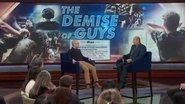
Recently, parents across America were googling “who is Andrew Tate?” making him number three in Google searches for 2022, right behind Queen Elizabeth and Donald Trump. Tate claims to be helping young men acquire lots of money, drive luxury cars, and pick up hot women. However, in August 2022, Tate was banned on social media for his misogynist viewpoints. Twenty-four-year-old Ben says when he was a teen, he had zero self-esteem, never got past the first date, and felt powerless with girls. He tells Dr. Phil that men like Tate inspired him to break out of his shell -- and he shares how. Then, a healthy debate about masculinity with the “Godfather of the Manosphere," a scholar and author, a men’s rights attorney, and the CEO and founder of the Center for Countering Digital Hate.

From social media and gaming to scrolling endlessly online, today's youth are more plugged in when it comes to digital devices. In fact, 50% of teenagers admit they are addicted to their devices, and today, you will learn why! Dr. Phil speaks with Brittney, who says her teenage daughter is so addicted to social media, she resorted to running away from home and living in a tent so her mother cannot restrict her WiFi and social media use. Dr. Phil also speaks with Tammy, who claims her 11-year-old daughter took her own life due to an addiction to social media. Tammy hears for the first time what her daughter posted online weeks before her suicide. Plus, Dr. Phil meets Mark, whose 16-year-old son shot him and then killed his mother after Mark claims they took away a violent video game he was addicted to. And, Dr. Nicholas Kardaras, who is widely considered the foremost digital addiction expert, explains how screen time can seriously affect the development of a child's brain.

Dr. Phil meets Lara and her husband, Bill, who say they’ve been arguing constantly, and the “divorce” word has come up too often – and they want to know how to fix what’s wrong. Then, Simona Fusco, matchmaker and the founder of Perfect 12, sets up Kelly and Alex, both 51 and divorced parents, who say they are looking to start their lives over with someone new. Will they be a match? And, we catch up with past guests Paula and Jeremy, who were on the verge of divorce when they last appeared on Dr. Phil. Find out their surprising update. Plus, an organization that encourages children with autism to get on the tennis court and into physical and social activity. Hear more about ACEing Autism and how to bring their programs into your community and schools.

Baronica and Nathan say that on July 10, 2021, their then 9-year-old son shot his 8-year-old brother in the chest with one of six unsecured guns in their home. The parents bravely come forward to tell their story in hopes that other parents will learn from their mistakes. Then, Kristin says the last time she saw her 15-year-old son, Ethan, he was heading to his best friend’s house. Within hours, she was informed Ethan had been killed by an unsecured gun in his best friend’s house. Kristin has fought to have Ethan’s Law enacted in CT, which ensures that parents are held accountable for the safe storage of their weapons. And, hear from Susan, whose daughter Amanda was sitting on a park bench when she was shot by a group of young people, leaving her paralyzed.

James says he wants to raise awareness about the kidnapping epidemic of models the Los Angeles area. James says he meets women online, and when they are on their way to meet, the women are kidnapped and transported to an undisclosed camp. Then, he says a gang leader from the camp contacts him, and he saves these women by sending gift cards to free them – because the gangs only accept gift cards. Dr. Phil talks to James about these alleged online models, specifically “Ava,” who James says he invited to the taping, and “Maria,” who James says he recently saved from a camp. Is James saving models? Or, is his kindness being taken advantage of and he is being scammed for money? And, does the woman in the photos of “Ava” show up to meet Dr. Phil? Find out.

In South Florida, iguanas are destroying people’s yards and plants and damaging their property. And, feeding iguanas can attract more, leading to a nuisance for some South Florida homeowners. Dr. Phil speaks to Darren, an animal lover who says he doesn’t see any problem feeding the green iguanas that are overpopulating the lake in his townhome community. Darren says he doesn’t understand why his neighbors are so upset with him. He claims his neighbors are just jealous because the iguanas like him and don’t eat his plants, while they eat all his neighbors’ plants. Matthew says he lives three houses away from Darren and is tired of him feeding the reptiles. Matthew, who admits to having arguments with Darren and allowing his dogs to defecate in Darren’s yard, says Darren is making the iguana problem worse. How does Darren respond to his neighbor? Darren’s daughter, Ariela, and her boyfriend, Kyle, share how they feel about her dad’s behavior.

For millions of women, the minute they give birth, they’re filled with incredible joy, and their instinct is to protect their babies at all costs. However, 1 in 7 women will develop postpartum depression and anxiety after having a baby, and some women even develop postpartum psychosis. New moms may have fantasies of escaping their reality, panic attacks, hallucinations, and worst of all, may kill their children. Many women have no history of mental health issues and are too embarrassed to talk publicly about this, fearing they will be judged as bad moms. However, they all say it’s time to discuss this openly and remove the “baby blues” stigma, as the seriousness can go way beyond that.

Cece is a high school senior who says she became addicted to social media when she was 12 years old. She claims Instagram algorithms took her down a dark rabbit hole, which led to an eating disorder. Last year, Cece and her mother, Candace, filed a lawsuit against Meta, Instagram’s parent company, accusing it of “causing and contributing to a growing mental health crisis among children and teens.” They say the big social media companies have not been held accountable for what many experts warn is a connection between heavy social media use and mental health issues in children. Another mother, Linda, claims social media content delivered to her 23-year-old daughter through algorithms led to her eating disorder. And meet Ian, a father whose 14-year-old daughter’s 2017 death was recently ruled a suicide resulting from “depression and the negative effects of online content.”

John Kinsel has been locked up for more than 26 years for a crime he says he did not commit -- raping, choking, and threatening to kill a child. About 30 years ago, when John was 22, he says he met and fell in love with a single mother of three, Adrienne. They moved in together 10 months after their first date, and Adrienne says John got the chance to play dad to Adrienne's three children. Some claim that didn’t sit well with Adrienne’s middle child, 9-year-old Alyssa. Alyssa has said John was strict and demanding, and she didn’t like him. Alyssa now says she devised a plan to get rid of John; she says she lied when she accused John of sexually abusing her for years. Based on her testimony, John was convicted and sentenced to life in prison without parole. Nine years later, 18-year-old Alyssa walked into the District Attorney’s office and said she wanted to recant her testimony -- why?

It’s no secret that children who play contact and collision sports are at risk for head trauma and concussions. But the question is, should children be allowed to play these sports? Dr. Phil meets 17-year-old Sidney and her parents, Carlos and Kristen. Sidney says every day, she wakes up having almost no memory of the day before and is unable to recognize people she knows after sustaining a third concussion playing women's lacrosse. Then, Kimberly and Jan say they advocate for an age limit for children playing collision sports like football, but not everyone agrees. A debate ensues when Dr. Phil introduces fathers Lester Ricard Jr. and Barak Lurie, who both say the benefits of these sports outweigh the low risks associated with them. And, renowned neurosurgeon and concussion expert Dr. Patrick Johnson shares what he thinks about children playing collision and contact sports. Lastly, Dr. Phil speaks with Karen, a mother, who says playing football killed her son.

Dr. Phil speaks with four women, all on different journeys with alcohol. First, Michelle says she decided to become sober during the pandemic but recently started drinking again “in moderation.” Erica says she has been sober for two years but admits to drinking a beer “occasionally.” Alex says she has been happily sober for eight years but still occasionally questions if she could drink again. And, Devin says drinking is part of her daily ritual and “who she is,” and she resents the shaming of the “wine mom.” Also joining the conversation is Susan Stewart, Professor of Sociology at Iowa State University and author of “On the Rocks: Straight Talk About Women and Drinking,” who says stereotypes about women who drink oversimplify the issue, and some may not even recognize the transition between moderation and problematic drinking habits.

Atif Rafay claims he was forced into confessing to a crime he says he did not commit. In the summer of 1994, 17-year-old Atif was home from Cornell University, hanging out with his high school best friend, Sebastian Burns. On July 12, when they returned home sometime after 2 a.m., they say they walked into a brutal scene. Atif’s parents and sister had all been bludgeoned to death. Atif, now 46, has been sitting in prison for 28 years serving three life sentences. Speaking to Dr. Phil from prison, Atif says two undercover cops posed as mobsters and lured the young men into thinking that they would be killed if Atif didn’t confess to murdering his family. Dr. Phil dissects Atif’s confession with his appellate attorney Daniel Woofter; attorney Laura Nirider, co-director of the Center on Wrongful Conviction; Dave Thompson, expert in interrogation training and certified forensic interviewer; and Innocence Project board member Jason Flom.

Sologamy, also known as “self-marriage” or “self-partnering,” is a symbolic ceremony where a person commits to a meaningful and loving relationship with themselves and a promise to give themselves what they often seek from other people. It is said you can’t love others until you love yourself first -- but is saying “I do” to yourself going too far? Critics of sologamy say “self-marriage” is narcissistic and makes a mockery of this special sacrament. Dr. Phil meets 30-year-old Danni, who says she spent $4,000 on her self-wedding; life coach and expert Sasha Cagen, who married herself at 40 and guides other women to marry themselves, and says she spent $100 on her self-wedding; and 50-year-old Sonya, who says she spent $15,000. Then, hear from John McEntee, Founder and CEO of “The Right Stuff,” who says sologamy is selfish and marriage should be viewed as a sacred sacrament.

The Murdaugh family were solicitors in South Carolina for three generations, leading prosecutions for their district and playing a key role in deciding which cases were prosecuted. The family was known for their position, power, and prestige. However, since 2015, personal injury attorney Alex Murdaugh and his family have been linked to a series of investigations for deaths, corruption, insurance fraud, defrauding clients, and now, murder. Recently, 54-year-old Alex was indicted on two counts of murder and two counts of possession of a weapon during the commission of a violent crime for the 2021 killings of his wife, Maggie, and youngest son, Paul. Dr. Phil and his panel of experts discuss key points and evidence from the trial, which began on January 23, 2023. See police bodycam footage of Alex at the crime scene, including his interview with police in the cop car. And, the experts analyze Alex’s behavior on the night of the murders.

Dr. Phil and his panel of experts, former prosecutor Loni Coombs; Court TV reporter Vinnie Politan; and forensic expert Joseph Scott Morgan, continue to discuss the ongoing trial of Alex Murdaugh, a prominent personal injury attorney from South Carolina who is accused of killing his wife and son. What do the experts say about a controversial video that police say sounds like a murder confession from Murdaugh? Did police do due diligence in searching for evidence? And, Joseph Scott Morgan weighs in on the possible significance of some of the Murdaugh’s custom-made guns. Plus, hear the housekeeper’s testimony. Finally, hear about the drama at the trial, including a bomb threat and the reprimanding of Murdaugh’s family members.

Since 2018, roughly 30 states have legalized sports betting, including 21 that allow it online. In the last 12 months, around one-in-five U.S. adults say they have personally bet money on sports in some way -- and COVID-19 drove 64% of people to spend more time and money on online gambling. So, chances are if this topic doesn’t affect you, it is affecting someone you know. The legalization of sports betting has raised concerns about gambling addictions – and if sports fans are taking their “love of the game” too far by online gambling. Dr. Phil talks with Charles, a self-admitted gambling addict, who says he hasn’t gambled in two months but fears he could again. Dr. Phil also hears from Trell, a sports gambling influencer, and Sean Green, co-host of “The Sports Gambling Podcast,” on what they claim are “pros” of sports gambling. Then, Gary says he was a compulsive gambler from age 18-40 and now advocates against sports gambling.

On February 16, 2022, Jared Bridegan, a 33-year-old father of four, was killed in an “ambush style” shooting in Jacksonville, FL, while his 2-year-old daughter watched from the car. Jared dropped off his 9-year-old twins at his ex-wife’s house and was returning home when he stopped to remove a tire from the road. Police say they believe the tire was placed there deliberately. Almost a year later, police have arrested a suspect but say he didn’t act alone. Rumors are swirling that Jared’s ex-wife and her current husband allegedly may have been involved in the killing. However, Jared’s ex-wife denies she was involved and says she was devastated when she found out that Jared had been killed. Jared’s widow, Kirsten, and his brother, Adam, speak out to share the details of the case and how this has affected their family.

School nurses administer more daily medication for ADHD than any other chronic health condition. In December 2022, the Drug Enforcement Agency warned that over prescription of ADHD medication could be as bad as the opioid crisis. Is medicating children for ADHD a troubling trend or an appropriate response? Megan says her 7-year-old son has always been a handful, and when she finally made an appointment to discuss this with his physician last summer, the recommendation was medication. Hear why she says she’s worried and blames herself for his behavior. Then, Cassie and Carl say their 3-year-old twin boys were acting so wildly during an evaluation that their doctor said she hadn’t seen a case of ADHD so bad in a long time. Now that the boys are medicated, what does Cassie say is her biggest worry?

Headlines about teenage drivers killing and injuring themselves or others while driving recklessly, including at high speeds, are becoming all too common. Today, Dr. Phil shows parents the reality of what many teens are doing behind the wheel of their vehicles. First, 19-year-old Nash and his father, Brent, both say they have the skills and performance cars to safely drive over 100 mph. Then, hear from Reina, a mother who says she had no idea her son Ajanni was part of the street racing culture until he lost his life in a fatal crash. Ajanni’s best friend, Avery, says he stopped driving recklessly after the loss of his friend. Plus, social media star Damaury talks about taking police on a chase at speeds he claims were over 150 mph and his subsequent arrest. Has he changed his carefree driving ways?

Dr. Phil is joined by families who claim they have experienced horrific situations at the hands of daycare providers. Keegan and Alissa say their worst nightmare came true when they discovered their 2-year-old daughter, Reign, was one of several children allegedly terrorized by several employees at their child’s daycare. Kimberly, who also had a child in the same class, says she doesn’t believe the owner is responsible. Why? In a different case, Ken and Kelly say a DCFS investigative unit contacted them regarding allegations of child abuse at their then-3-year-old’s daycare. Find out what happened to the owner and the teacher. Then, Dr. Cathy Grace and Dr. Kenya Wolff, Co-Directors of the University of Mississippi Graduate Center for The Study of Early Learning, say there is a childcare crisis in America. Dr. Grace says high-quality childcare is crucial for children's social and academic development.

Amy, a mom and widow of 15 years, says she is so busy with work that she relies on social media for companionship. However, Amy admits she gets envious seeing others having a fabulous time while she’s stuck being alone. Influencers Talitha and Megan admit that they have both staged and filtered photos so much that they don’t portray their real lives. Megan says she found being an influencer so toxic for her mental health, she decided to take a social media break. Meanwhile, 20-year-old Zoya says she wants to be an influencer and understands that most of what is online is manipulated by others to get views. Performance Artist Matty Mo explains how he built a fake private plane interior, “The Private Jet Experience,” for people to stage photos as a social commentary about influencers. And, Cyber Security Expert James McGibney explains how algorithms are designed to intentionally hook people into social media and create an addiction.

Rachel fears that her friend Simone is being scammed by someone online pretending to be singer Omarion, and Simone wants the truth; online romance scams; Dr. Phil and Robin share their experience with their identities being stolen online.

Meet John, who promotes the benefits of a raw animal product diet to his Instagram followers. Then, Jules not only follows a high-fruit raw vegan diet – but also feeds it to her 3-year-old daughter. Next, meet two women who were influenced to jump on one of the most popular new diet trends: taking a diabetes medication for weight loss. However, both landed in the hospital. And, Cameron, a young woman looking to lose weight fast who was influenced by social media to try the Keto diet to quench her sugar cravings, wound up in the E.R. Plus, a woman says her online bodybuilding coach suggested an autoimmune paleo diet which caused her to lose hair, have frequent injuries and also landed her in the hospital.

Rapper/songwriter Brooklyn Queen says four years ago, a complete stranger began contacting her and trying to connect with her. Why? She says the woman was claiming to be her birth mother and was insisting on reconnecting with her. However, Brooklyn Queen says there is absolutely no way this can be true because her mother, Kimberly, is her biological mother, and she was not adopted. Brooklyn's parents, Kimberly and Duke, say they have no idea why this woman believes their daughter is hers. Kimberly and Brooklyn Queen asked to take a DNA test in hopes that it would finally convince this woman that Kimberly is in fact Brooklyn Queen’s mother. What do the results reveal?

The number of young people who identify as transgender has nearly doubled in recent years. Some people say this is because the transgender community is more embraced, but others say teens are rushing to get medical treatments without counseling or knowing the facts. In some extreme cases, this can even lead to what’s called “detransition.” As a teen, Ryan transitioned from a female to a male but says she then realized she made an epic mistake, reversed her decision, and detransitioned to be female again. Over 20 years ago, Kara had medical treatments and later gender reassignment surgery and says policy has greatly changed. She says it's concerning that today, there are far less requirements for children seeking puberty blockers, hormone therapy, and surgery. However, Reece says he knew he was male as a small child, and these medical treatments saved his life as a teen. He says denying teens the right to these procedures is “trans genocide.”

Three families with one thing in common: they say their daughters, collegiate student-athletes, were suffering in silence before they died by suicide. They say their daughters faced immense pressure to balance it all, something that many student-athletes face, but often don’t express due to the stigma around mental health. All three families are pushing for change and more conversations about mental health on campus. Then, Thomas, a current student-athlete, shares his story of struggling with mental health as a D1 football player. He attempted to take his life but now shares his story as a message to others who may also be suffering alone.

Anya, Shannon’s former best friend, says she cut off contact with Shannon because of her social media posts. Shannon insists she just wants to share her point of view and exercise her First Amendment rights, even if it costs her relationships. Can Anya and Shannon repair their relationship? Then, meet 62-year-old Donna who fell in love and married her 33-year-old husband, Emmanuel, whom she met in Ghana. She says they are very happy, except for his 24/7 addiction to TikTok! Emmanuel says Donna is just jealous when he doesn’t give her attention. Dr. Brian Boxer Wachler, author of “Influenced: The Impact of Social Media on Our Perception,” says his family had an intervention to make him realize he must give up his TikTok addiction. And, New York Times bestselling author Dr. Shefali discusses her latest book, “The Parenting Map,” and advises the guests on how to move forward.

Disbarred personal injury attorney Alex Murdaugh, from one of the most prominent families in South Carolina, was recently convicted of the 2021 murders of his wife, Maggie, and youngest son, Paul. Hear from one of the jurors and what he says sealed Murdaugh’s fate. Plus, former Prosecutor Loni Coombs and Court TV reporter Vinnie Politan discuss Murdaugh’s alibi, how the timeline of the night of the murders was crucial, and the numerous lies Murdaugh told.

In June 2021, Alex Murdaugh, a once prominent personal injury attorney from South Carolina, claimed he found his wife and youngest son shot dead on their hunting lodge property. About a year later, Murdaugh was charged for their murders, and recently, a jury convicted him, and he was sentenced to two consecutive life sentences. Dr. Phil and his panel of experts, former Prosecutor Loni Coombs, Court TV reporter Vinnie Politan, and body language experts Scott Rouse and Greg Hartley, analyze Murdaugh’s behavior during his double murder trial. Hear their breakdown of Murdaugh’s body language, including three key behaviors that they say were glaring red flags.

Stories of innocent citizens being brutally attacked by complete strangers who have long and violent criminal histories have become all too common. Many claim these attacks are a result of soft-on-crime policies enacted by “woke” and “progressive” district attorneys and other elected officials. They claim this pro-criminal agenda emboldens criminals and allows them to stay out of jail and prison while leaving residents unsafe and victims abandoned. Others contend criminal justice reforms are needed to fix a broken and unjust criminal justice system. Dr. Phil has a powerful discussion with people on both sides of this issue. Plus, Dr. Phil speaks with Olympic volleyball medalist Kim Glass and former Los Angeles County Deputy District Attorney Irene Lee, who both claim they were attacked by the same man, a reported violent career criminal, who they say should never have been allowed to walk the streets.

Twenty-one-year-old Julia Wendell captured the attention of millions across the globe when she claimed she believes she may be the most famous missing child in the world, Madeleine McCann. Wendell claims she has the same famous dark mark on her eye as McCann and similar body markings. She also claims she can’t remember large chunks of her early childhood, isn’t sure of her age, and has never seen her birth certificate. In an exclusive interview, Wendell reveals what else she discovered that made her believe she is the girl who vanished in 2007 at 3 years old. However, Wendell’s parents in Poland insist she is their biological child and deny she was kidnapped. McCann, who would be 19 years old now, was abducted in 2007 while on vacation with her family in Portugal and is presumed dead. Has McCann finally been found? Or, is this a cruel hoax?

Sam is a skateboarder and recent college graduate who is currently living in his van with his kitten in Los Angeles. He says he is not working and wonders how he is expected to remain positive when bad things just seem to happen to him all the time. Pastor James Ward, founder of INSIGHT Church and author of “Zero Victim: Overcoming Injustice with a New Attitude,” says victimhood culture causes the alleged victims to bully others into accepting their ideologies, and we must start creating better, stronger people who do not see themselves as victims. Trauma therapist and author of “Through The Glass,” Shannon Moroney, says even though she personally experienced an unbelievable tragedy, she does not believe in people believing they have no responsibility to take care of the wounds inflicted upon them.

Dr. Phil delves into the very sensitive topic of discrimination. The news has reported claims of discrimination against white people in university admissions, graduation ceremonies, and college welcome weeks. Similar claims have been made in the workplace. Political commentator and activist Candace Owens contends that reverse discrimination does exist, while Dr. Luke Wood and Dr. John Pascarella disagree. PragerU podcast host Amala Ekpunobi and activist Danielle D’Souza say they believe America is obsessed with race. Comedian Tyler Fischer claims he was discriminated against in the entertainment industry because of race, and school teacher Alexis discusses teacher layoffs in Minneapolis.

The loneliness epidemic is real, and it’s affecting younger people in startling numbers. A 2020 survey on loneliness found an increasing correlation between social media usage and feelings of loneliness. Another study found that young people express a statistically significantly greater degree of loneliness after “conversations” on the Internet compared to face-to-face conversations. Dr. Phil talks with a group of Gen Zers and millennials who express their thoughts and emotions about their feelings of loneliness, including their struggles with the social stigma of sadness and feeling alone.

Dr. Phil discusses forced labor in prisons: should it end because it is punitive -- and even abusive -- or should it be seen as a productive way for some prisoners to spend their days and invest in their future? Jorge Renaud, director of Latino Justice, and Demico Boothe, author of “Why Are There So Many Black Men In Prison?” discuss their experiences of being forced to work in the prison system. Tiheba Bain, founder of Women Against Mass Incarceration, says while she acquired certain skills in prison, prison labor is indentured servitude. In America, forced labor in the prison system is legal under Federal law, however, Bianca Tylek, founder and director of the non-profit advocacy organization Worth Rises, discusses why she believes it is wrong.

Many Americans have faced horrific mass shooting tragedies throughout the country. Many lives have been lost on those catastrophic days, but many survivors have lived, and their traumas continue to haunt them for years. Dr. Phil hears stories from survivors and how their tragedies have impacted their lives ever since. Jena describes the day she narrowly escaped death in the Aurora, CO movie theater shooting. Sue Ann and Ashley say they both escaped the deadliest shooting in modern history at the Route 91 massacre in Las Vegas. And, Alexander recalls the recent Highland Park, IL shooting on the Fourth of July, where he and his family ran for their lives to find shelter. Hear how they’re healing now and what they’re doing to move past tragedy.

Did you know that your emotions could be damaging your heart, and you might not find out until it's too late? Dr. Phil reveals information that could save your life or someone you love. First, Dr. Phil meets Emily, a self-professed workaholic, whose motto is a good time is earned after everything on her multiple to-do lists is completed to perfection. Was the stress of her highly productive lifestyle the cause of her recent heart attack? Emily's best friend, Jeff, joins the conversation because he says he is worried Emily may suffer another heart attack if she doesn't de-stress her life. Then, parents Meghan and Tyler discuss how Tyler's cardiac issues arose after the tragic death of their 5-year-old son. Find out if his grief and sadness may have caused his heart to literally “break.” Lastly, Dr. Phil speaks with Dr. John Whyte about his new book, "Take Control of Your Heart Disease Risk," which tackles how mental health and the heart are inextricably linked.

Dr. Phil hears three stories of people struggling with the aftermath of having a dark moment in their lives reported on in the news. Sisters Ashley, Ebony, and Fallon say their lives were turned upside down when their younger brother, Jerome, was, according to them, falsely convicted of murder. Now, they say they can’t figure out how to move forward. Then, Ian and Colleen say they are stuck after Ian was dubbed a hero for intervening in a shooting that tragically ended with one man losing his life. Ian says he has been struggling with feelings of guilt, grief, and frustration ever since, and that they have haunted even his happiest moments. And, Nancy says she thought she had dealt with her past sexual abuse and trauma but that it all came flooding back when she read a news article and saw that the person who she claims abused her was arrested for abusing other children – something she says she feels immense guilt over and even questions if she should be held responsible.

The recent movement, originating in the activism of transgender advocates, to replace the word "woman" with gender-neutral terms causes a growing concern among women born biologically female that the language changes are allowing women to be erased.

Angel-Rose discusses how every night she is attacked by spiritual entities similar to ghosts from the astral plane.

Activists, writers, educators and descendants discuss giving financial reparations to African Americans.

Dr. Phil gives viewers a sneak peek at what happens when the show ends: after the taping, the often-lively exchanges continue, and the cameras keep rolling; Chris' neighbors saved his life by performing CPR while he was having a heart attack.

Whether transgender students should be allowed to use bathrooms corresponding with their identities; how old children should be when learning about gender identity in school; whether parents should make decisions on what their kids learn and when.

The search for a missing teen who may be the victim of sex trafficking; a girl says she was lured into sex trafficking by a man she met online; former athletes and assault survivors Jon Vaughn and Trinea Gonczar partner to fight sexual abuse.

How product and service influencers persuade people to spend money; perspectives from an influencer, a marketing specialist and a spending coach; Brendan Gahan, Chief Innovation Officer at Mekanism.

Discussing the epidemic of childhood obesity; a 13-year-old shares her story of being bullied at her school for being overweight; one of the first teens to undergo weight-loss surgery; President of the Obesity Medicine Association Dr. Angela Fitch.

Teri says she was attacked by former friend Valina's dog, while Valina says that Teri exaggerated her injuries so much that her dog had to be euthanized; a woman tells of being attacked by a client's two dogs.

A woman says she was attacked by two dogs she was dog-sitting, and nearly lost her life; trainer and behaviorist Jas Leverette.

James Addie, a husband and father, lived a double life, leading to the murder of his fiancée 48 hours before their wedding day; his two families meet to pick up the broken pieces of their lives.

For two years, Terri has sent thousands of dollars to her millionaire boyfriend, Ricardo, whom she plans to marry but has never met in person.

Terri has been waiting two years for her millionaire boyfriend, Ricardo, whom she has never met in person, to return home from Canada with their Bitcoin investment; updates on some former Dr. Phil guests who were scammed.

Individuals who microdose psychedelics to achieve relaxation join Dr Phil, experts and sceptics to discuss its benefits and dangers.

Anti-immigrant sentiment and anti-Latino hate crimes; a couple say a woman terrorized them for a year; experts discuss rhetoric, misinformation, hostile speech and disrespect; Jason Tatenhove (book "The Perils of Extremism").

T.D. Jakes says disruptive thinking has led to some of the world's most innovative and necessary movements, and every period of chaos brings an opportunity to disrupt by providing an unexpected alliance or solution.

Some say critical race theory (CRT) admonishes all white people for being oppressors while classifying all Black people as hopelessly oppressed victims, but others say it must be taught to children because future generations could be hurt without it.

As a child, Alyssa wanted to get rid of her mother's strict boyfriend, John, so she told a lie, accusing him of sexually abusing her. Out of guilt, she retracts her confession, giving John a chance of a retrial after spending 26 years in prison.

Dr. Phil and his wife Robin answer questions and address rumours from their fans, as well as questions and tributes from some of their celebrity friends.

Artificial intelligence has the potential to improve people's daily lives, but it also raises ethical and societal concerns about its impact on employment, privacy and the future of humanity; Dr. Phil gets a special delivery from Serve Robotics.

Doreen's son, John Giuca, and Yvette's brother, Billie Allen, have spent half their lives in prison for crimes they say they did not commit, and both women say they will stop at nothing to get their loved ones out of prison.

Richard Glossip was convicted of first-degree murder for the beating death of his boss, based largely on the testimony of a man who said Glossip hired him to carry out the murder.

Andrew Tate is known for his misogynistic social media posts and videos; discusses whether parents should worry about Tate's influence on their sons; a group of teenage boys surprise their mothers when they share what they think about Tate.

Dr. Phil follows up with some of his most talked-about guests to find out what happened when they left his stage and returned home.

Dr Phil continues to provide thrilling updates on the past guests that viewers enquire about the most.

Innocent people, many of them miners, are often convicted after providing police with false confessions; what parents need to know to prevent it from happening to their children; Brendan Dassey, profiled in Netflix's "Making a Murderer."

Dr Phil shares how more than 23,000 young people age out of the US foster care system every year; two women say they faced challenges in the foster care system and ageing out of it; one gets the surprise of a lifetime.

A federal jury finds a pair of Black men not guilty of killing a white police officer, but they are sentenced to life in prison anyway; their attorney explains why; the officer's daughter comes face to face with the convicted men's family members.

A woman tells how she became addicted to Xanax and Oxycodone and later learned the pills were laced with deadly synthetic opioid fentanyl; a former drug dealer gives his perspective on the dangers of buying drugs; families share tragic stories.

